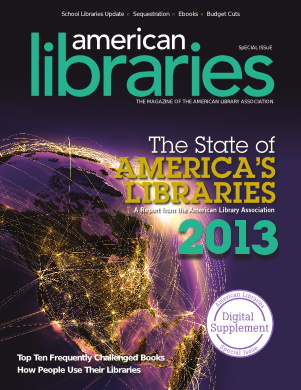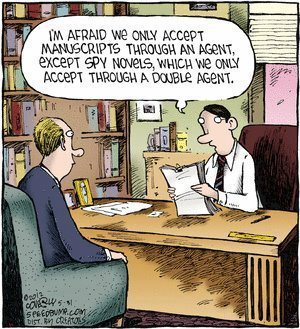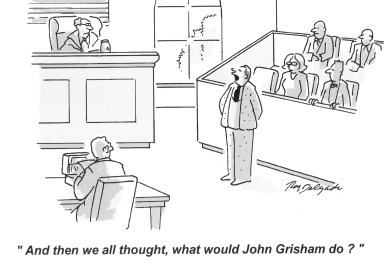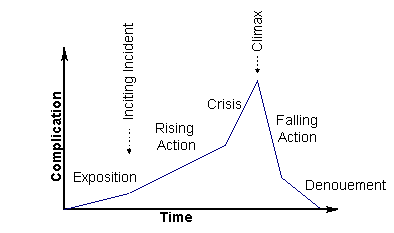Tyson Adams's Blog, page 85
April 18, 2013
Unfunny Comedians
Earlier this week comedian Stephen Colbert was able to make a tragic event funny, touching and uplifting, all in the same monologue. For that moment the world was a little brighter. Then I accidentally clicked on a Steven Crowder Youtube video and I immediately despaired for humanity that this man could call himself a comedian. He is to comedians what Norman Bates is to hotel/motel owners. In the interests of the interwebz, I’m compiling a list of “comedians” whose performances may cause lasting damage to your sense of humour.
Steven Crowder
His only funny moment was when he tried to pretend he didn’t pick a fight with a union rep at a rally.
Dane Cook
I’ll be fair to Dane, he has turned in some halfway decent acting performances (E.g. Mr Brooks). Pity he can’t act like a comedian. Even his Twitter feed ‘jokes’ make you question why he isn’t limited to less than 140 characters.
Adam Sandler
I admit it, I have a copy of one of his comedy CDs. Of course, jokes about peeing your pants and lunch ladies have an expiry date of seconds after the joke is told.
Jay Leno
This unanimous decision of the interwebz is that Coco is the comedian, not Jay. A real comedian, Bill Hicks, had some interesting things to say about the Jay Leno Show.
Carrot Top
Rangers already have a tough time in this world, Carrot Top made it worse.
Dave Hughes
The funniest thing about Dave Hughes is that he has managed to forge a career as a comedian in Australia.
Tagged: Adam Sandler, Boston, Boston bombings, Carrot Top, Coco, Comedians, comedy, Dane Cook, Dave Hughes, entertainment, Funny, Jay Leno, mr brooks, norman bates, Stephen Colbert, Stephen Colbert on Boston, Steven Crowder, Unfunny, Unfunny Comedians, youtube video

Banned Books: The Huff Post sequel
It seems that the Huffington Post are stealing my article ideas. Only three days after my article lamenting censorship of books, they do an article on the 2013 Banned Books campaign (September 22-28th).
Now I’m not bitter, in fact, I’m currently covered in orange sherbet. So this follow-up article is to add my support to the Banned Books Campaign and talk about the most frequently challenged books of last year. The annual report of the American Library Association had a lot of interesting findings. They are still having problems with publishers allowing them to loan ebooks (sigh – I bet the same arguments were made when libraries first started lending books), the people using libraries still think that they offer a very important service, they have become technology and research hubs for people, but visit rates have dropped a bit. The really interesting thing for me – because I’m not American, let alone a member of an American library, so all of those points are belly lint to me – was the top ten list of challenged books for 2012.
Here is the Office of Intellectual Freedom’s Top Ten List of Frequently Challenged Books in 2012:
■ Captain Underpants (series), by Dav Pilkey (offensive language, unsuited for age group) TA: Exactly what were parents expecting from a book with this title?
■ The Absolutely True Diary of a Part-Time Indian, by Sherman Alexie (offensive language, racism, sexually explicit, unsuited for age group) TA: Oh noes, a young adult book that doesn’t treat the readers like kids!!
■ Thirteen Reasons Why, by Jay Asher (drugs/alcohol/smoking, sexually explicit, suicide, unsuited for age group) TA: Another young adult book that deals with real issues, can’t have that!
■ Fifty Shades of Grey, by E. L. James (offensive language, sexually explicit) TA: An erotica book that is sexually explicit….. Words to describe the stupid, fail me.
■ And Tango Makes Three, by Justin Richardson and Peter Parnell (homosexuality, unsuited for age group) TA: Based on real penguins, must be evil!!
■ The Kite Runner, by Khaled Hosseini (homosexuality, offensive language, religious viewpoint, sexually explicit) TA: Be warned, the characters aren’t white or Christian!!
■ Looking for Alaska, by John Green (offensive language, sexually explicit, unsuited for age group) TA: Written by John Green, so clearly the complainants were too stupid to enjoy the book.
■ Scary Stories(series), by Alvin Schwartz (unsuited for age group, violence) TA: The title clearly didn’t give the game away for some sensitive little souls.
■ The Glass Castle, by Jeannette Walls (offensive language, sexually explicit) TA: Real life is clearly too confronting for some readers.
■ Beloved, by Toni Morrison (sexually explicit, religious viewpoint, violence) TA: Someone clearly thinks that slavery is a lot more fun than the author portrayed it.
The thing I find striking about this top ten list is that the books are all multiple award winners (except that crud by EL James, which makes up for lack of awards with sales to keep a publishing house afloat). As such, I’d hazard a guess that most of the complaints are coming from people who haven’t read the book, nor let their little darlings near a book. We can only hope that next year people are too busy reading good books to complain about them.
Tagged: Alvin Schwartz, American Library Association, Authors, Banned, Banned books, Banned Books Campaign, Books, Dav Pilkey, EL James, Funny, Huffington Post, Humour, Jay Asher, Jeannette Walls, John Green, Justin Richardson and Peter Parnell, Khaled Hosseini, Library, Literature, Novels, Sherman Alexie, Toni Morrison, Tyson Adams, Young Adult

April 16, 2013
My thoughts on the Boston bombings
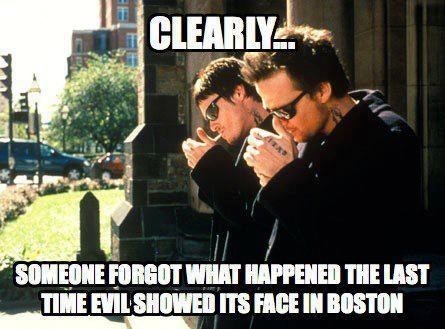
The Boondock Saints are back.
Tagged: Bombers, Boondock Saints, Boston, Boston bombings, Evil, McManus brothers, Patrick Duffy

April 14, 2013
Banning books
I’m against censorship. Unfortunately many are in favour of censoring books. You may have heard of the outcry over the decision to edit Mark Twain’s classic, Huckleberry Finn, to stop calling the main supporting character, Nigger Jim. What you may not have heard is that schools had stopped teaching Huckleberry Finn because they didn’t want to have to explain the historical and racial undertones and themes of the book. We can’t have a literary book actually studied now, can we! Definitely don’t want to look at Twain’s biting commentary on racism in the south of America, because that would mean discussing racism, and we like to pretend it isn’t still an issue.
It isn’t just the school curricula that are being impacted, it is libraries and book stores as well. The list of frequently challenged books is far too long and the reasons cited are far too ridiculous. For example, Brave New World by Aldous Huxley is regularly objected to for being: insensitivity; nudity; racism; religious viewpoint; sexually explicit. Seriously? What about the other complaints?
I’m offended by the word ‘sustainable’ as it is ambiguous term that is used politically as a catch-cry to gloss over reality. Does that mean I can complain about books containing that word? And what is sexually explicit? Is it when two characters embrace for a passionate kiss, or when the ball-gag and whips make an appearance? Are parents really concerned about the level of “smut” in the books their kids read or are they trying to have books banned because readers might enjoy them?
I know I have a complaint about the Twilight books. Now, my reasons aren’t like the other complaints (Reasons: religious viewpoint and violence), I just don’t like them because I’ve been dragged to see four terrible films by my wife. Ban the Twilight books so that husbands and boyfriends everywhere aren’t tortured with Kirsten Stewart’s “acting.”
Tagged: aldous huxley, Ban, Banned, Books, brave new world by aldous huxley, Cartoon, Comic, Complaints, Funny, Grant Snider, Huckleberry Finn, Humor, Humour, Kirsten Stewart, Literature, Mark Twain, Offensive, Parents, Problems, racism in the south, Reading, religious viewpoint, Right What You No, school curricula, Society, Twilight, Tyson Adams

April 11, 2013
How to submit to a publisher
NB: thanks to Zoe Sharp for sending this one to me.
Tagged: Agents, Author, Cartoon, Funny, Humor, Humour, Publishers, Publishing, Right What You No, Secret Agents, Spys, Submissions, Tyson Adams, Writing, Zoe Sharp

April 9, 2013
What would John Grisham do?
Tagged: Cartoon, Court room, Crime, Funny, Humor, Humour, John Grisham, Legal, Legal defence, Lol, Reading, Right What You No, Tyson Adams

April 7, 2013
Bookstore profitability
With the recent changes in publishing everyone has been talking about who the losers from the rise of ebooks has/will be. I think it is safe to say that publishers are still doing okay, if not more profitable. Authors, well, they have more options than ever to publish and make money. Of course, the speculation around the industry has seen authors being nickel and dimed on advances and shelf stocking.
But the big losers have to have been the bookstores, right? We’ve seen plenty of the big chain stores cease to be, we’ve heard about how much bookstores are battling. I’m not really convinced, since I remember that before the Borders collapse in Australia, there was plenty of evidence of financial mismanagement and not paying for books.
Well, I found this American retail business data for bookstores over the last 5 years. Have a look for yourself and see how well you think bookstores are faring.
Click to view slideshow.
NB: The source for this data covers a lot of the retail sector and makes me think that selling bakery goods is a great idea.
Tagged: Australia, Authors, bakery goods, Bookstores, Borders, financial mismanagement, nickel and dimed, Profitable, Profits, Publishing, Retail, Right What You No, Tyson Adams

April 2, 2013
7 Types of Narrative Conflict by Mark Nichol
Every work of literature, and much nonfiction narrative, is based on at least one of the following conflicts. When you write a story or a biography, or relate a true event or series of events, you need not focus on such themes, and there’s no reason to state them explicitly (except in passing, perhaps, to provide insight about a biographical subject), but you’re wise to identify the conflicts inherent in your composition and apply them as you write.
1. Person vs. Fate/God
This category could be considered part of conflict with self or with society (many people count only four types of conflict, including those two and conflict with another person or with nature). That’s a valid argument, as one confronts fate as part of an internal struggle and religion is a construct of society, but explicitly naming fate (Oedipus Rex) or God — or the gods (The Odyssey) — as the antagonist is a useful distinction.
2. Person vs. Self
A person’s struggle with his or her own prejudices or doubts or character flaws constitutes this type of conflict (Hamlet).
3. Person vs. Person
Any story featuring a hero and a villain or villains (The Count of Monte Cristo) represents this type of conflict, though the villain(s) is/are often representative of another antagonist in this list, whether a villain is in essence an alter ego of the protagonist (thus representing the conflict of person versus self) or stands in for society.
4. Person vs. Society
When the protagonist’s conflict extends to confronting institutions, traditions, or laws of his or her culture, he or she struggles to overcome them, either triumphing over a corrupt society (I draw a blank here – Tyson says: most thrillers have an element of this), rejecting it (Fahrenheit 451), or succumbing to it (1984).
5. Person vs. Nature
In this conflict, the protagonist is pitted against nature (Robinson Crusoe) or a representation of it, often in the form of an animal (Moby Dick).
6. Person vs. Supernatural
Superficially, conflict with the supernatural may seem equivalent to conflict with fate or God, or representative of a struggle with an evocation of self (Dr. Jekyll and Mr. Hyde) or nature (The Birds). But this category stands on its own feet as well.
7. Person vs. Technology
Humanity’s innate skepticism about the wonders of technology has resulted in many stories in which antagonists use technology to gain power or in which technology takes over or becomes a malign influence on society (Brave New World).
From Daily Writing Tips.
Of course, Mark left out the most important one for writers, especially those working on a series of novels:
Person vs. Expectations.
Someone picked up your book because the publishing house put a picture of a dog on the cover, even though there isn’t a dog in the book (unless you count the love interest), and is expecting a book that will help them get to sleep in the 10 minutes per night that they read just before bed. Anything other than an easy to read, short chapter, low concept novel and the expectations will either result in a sleepless night or dire reprisals on social media. If this is not the first book the person has read by the author, then unfair comparisons will be made if you don’t manage to outshine everything you’ve ever written and will ever write – the latter for those coming late to a series or author.
Tagged: biographical subject, count of monte cristo, Daily Writing Tips, fahrenheit 451, internal struggle, Literature, Mark Nichol, Narrative conflict, oedipus rex, Person vs., Reading, Right What You No, robinson crusoe, Structure, Tyson Adams, Writing

March 27, 2013
Book addict
Top 40 books of all time chosen by Lee Child
Easter is here for another year. I like to celebrate this time of year with bacon (for peace) and chocolate eggs and bunnies. Actually, interesting fact, the reason we celebrate Easter with eggs and bunnies is because they were fertility and sex symbols of the goddess Ishtar (pronounced Easter). In honour of the event, we clearly need the chocolate eggs and bunnies to keep us fuelled up for the fertility long weekend. In some of the spare hours, it might be worth reading a good book.
So, have you read any of Lee’s favourite books and will you be reading any of them this long chocolate fueled sex weekend?
1 To Kill a Mockingbird by Harper Lee
“The greatest legal thriller ever written.”
2 Revolution in the Head by Ian MacDonald
“If you were there, you can’t remember – so read this.”
3 Roots by Alex Haley
“A tragic story we should all know.”
4 Sophie’s Choice by William Styron
“If you read only 10 novels in your life, make this one.”
5 Catch 22 by Joseph Heller
“Started a brief but glorious period of dissent in the United States.”
6 The Day of the Triffids by John Wyndham
“The best what-if sci-fi ever.”
7 Brideshead Revisited by Evelyn Waugh
“An elegant saga and a double love story.”
8 The Grapes of Wrath by John Steinbeck
“A novel that described and defined an era.”
9 Nice Work by David Lodge
“Social realism from a recent but almost forgotten era.”
10 Goldfinger by Ian Fleming
“Iconic, for a reason.”
11 Ragtime by EL Doctorow
“What great novels used to be – and could be again.”
12 The Big Sleep by Raymond Chandler
“The best of the US golden age of crime writing.”
13 Romeo and Juliet by William Shakespeare
“The finest writing EVER.”
14 The Road to Wigan Pier by George Orwell
“How we used to live, think and write.”
15 Churchill by Roy Jenkins
“The best one-volume biography ever.”
16 The Dam Busters by Paul Brickhill
“Guys my age grew up on stuff like this.”
17 Gorky Park by Martin Cruz Smith
“A Californian writing about Russia in a Scandinavian way.”
18 Los Alamos by Joseph Kanon
“My current favourite writer’s debut – excellent.”
19 Postmortem by Patricia Cornwell
“There’s a reason she became so popular – and this is it.”
20 Sleepyhead by Mark Billingham
“An amazing debut with an early ‘reveal’ that will shock you.”
21 The Glittering Prizes by Frederic Raphael
“A time, a place – how we used to live, who we used to be.”
22 Maisie Dobbs by Jacqueline Winspear
“The first in an amazing new series.”
23 The Little Drummer Girl by John le Carré
“The unfairly neglected jewel in le Carré’s crown.”
24 City of Thieves by David Benioff
“Powerful, entrancing, tough, wonderfully imagined.”
25 Have His Carcase by Dorothy L Sayers
“The best of ‘golden age’ mystery fiction.”
26 The Girl Who Loved Tom Gordon by Stephen King
“An example of King’s genius – he can make a story out of the simplest premise.”
27 A Place of Execution by Val McDermid
“Everything plus that vital x-factor that makes you cross when you have to stop.”
28 The Lost by Daniel Mendelsohn
“A heartbreaking work of personal history that reads like a thriller.”
29 Debt of Honour by Tom Clancy
“The best from the man who dominated the genre for a decade.”
30 The Golden Rendezvous by Alistair MacLean
“His first dozen books are all great – why not start here?”
31 The Female Eunoch by Germaine Greer
“That rare thing – a book that changed the world.”
32 Dreams From My Father by Barack Obama
“I read this 7 years ago and wanted him for president right then.”
33 The Power of the Dog by Don Winslow
“A huge multi-generational crime saga – a book of the decade.”
34 The Day of the Jackal by Frederick Forsyth
“ ‘Book Zero’ in terms of recent thriller evolution.”
35 Green River Rising by Tim Willocks
“Maybe the best-ever prison novel – terrific suspense.”
36 The Runaway Jury by John Grisham
“Much more than it seems – a masterclass in narrative drive.”
37 Brilliant Orange by David Winner
“My favourite sport explains one of my favourite cultures.”
38 Night Sky by Clare Francis
“The multitalented Ms Francis unleashes terrific suspense and a great ‘OMG’ moment.”
39 On the Beach by Nevil Shute
“The best of 1950s style – with 1950s concerns.”
40 The Given Day by Dennis Lehane
“A big meaty epic, sprawling and inclusive – like novels use to be.”
Tagged: Babylonian, Books, Bunnies, Chocolate, Easter, Eggs, Fertility, Ishtar, Lee Child, Literature, Long weekend, Reading, Right What You No, Sex, Tyson Adams


